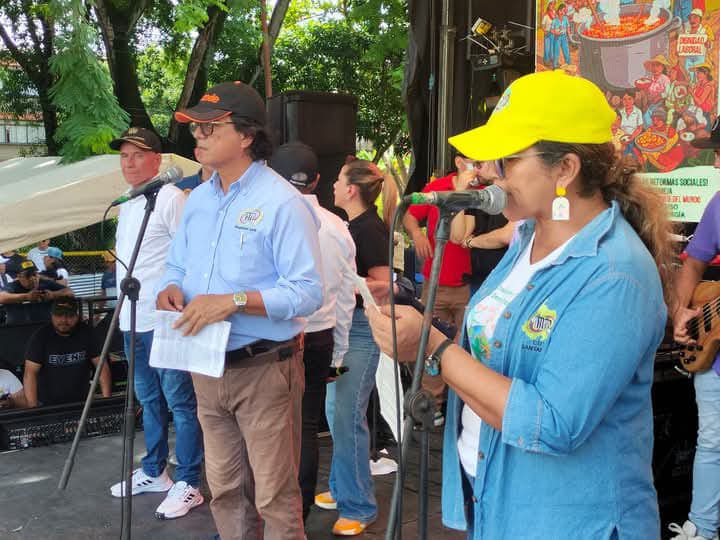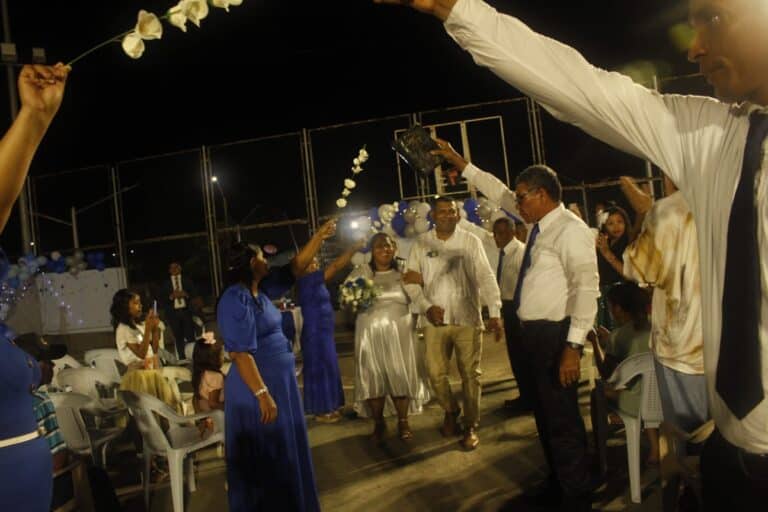The first of May is known as International Workers’ Day. It is a day on which the working class worldwide goes out to march to recognize and celebrate the historical and current struggles that have achieved better protections and dignified conditions in the workplace. Colombia is no exception, where thousands of people go out to the streets to recognize this important day.
The workers’ struggle in Colombia, as in many parts of the world, has been difficult, facing violent forces that have seen and treated their workforce as disposable. On many occasions they have even murdered anyone who raises their voice to denounce, or to demand guarantees. In December 1928 in northern Colombia, in a banana growing area, the American company, United Fruit Company, made an agreement with the Colombian army to put down a legitimate strike of its employees. The army massacred over 1,000 workers. This tragedy is known as the Banana Massacre, an event that marked the history of the country, and a reality that has not changed much. At the moment Colombia is one of the most dangerous countries in the world in which to be a union member.
In 1991 Colombia changed its constitution to include new labor guarantees, such as working hours, night shifts, minimum wage, health and social security. But only two years later, then-senator Alvaro Uribe Vélez introduced changes to the law that gradually removed the rights acquired in the new constitution. From 2002 to 2010, Uribe Vélez was elected president, during which his government managed to make even more changes to the laws, taking away more rights from the working class and creating a hostile environment for anyone who raised their voice.
The current government of President Gustavo Petro, since taking power in 2022, has tried to present before Congress reforms to the labor system that would return removed rights and introduce some new ones, such as guaranteeing a pension for peasant farmers and women. These people, who have worked all their lives without sufficient economic recognition for their work, would be able to contribute to the country’s pension system. After three years during which opposition forces have managed to prevent the reforms from advancing in Congress, President Petro has called for a Popular Consultation: 12 questions would be put to the Colombian people, who would decide in a popular vote whether or not they approve these reforms.
On 1 May in Barrancabermeja, social sectors and unions, including the Unión Sindical Obrera (USO) – the oil industry union and one of the oldest in Colombia – and the Space for Human Rights Workers of the Middle Magdalena (ETTDDHH), which is a coalition of social organizations, unions and human rights organizations, went out to march, to raise their voices and show their support for the Popular Consultation called by President Petro to return rights to the working class.
Let us pray that one day May Day will be a day only of celebration, that Colombia can have basic rights that respect human dignity. Let us pray for the day that May Day will no longer be a march against the exploitation and assassination of workers.




